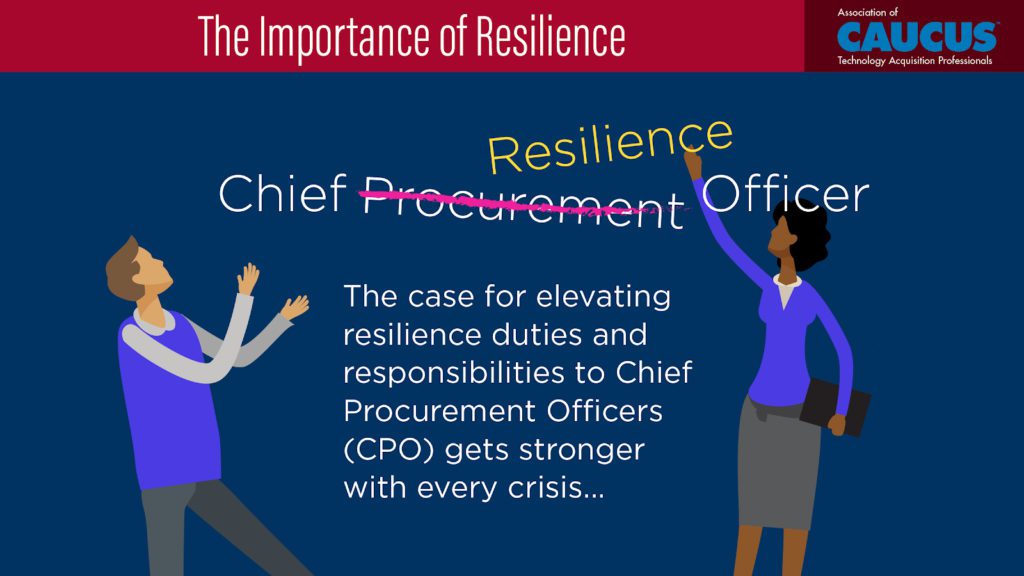The Role of the CPO is Evolving
by T. Jeff Vining
Per LinkedIn Economic Graph Research, CPO ranks 11th on the list of fastest growing C-suite titles of 2020, with 15% growth as a proportion of total C-suite hires last year.
Why this growth?
One explanation is to build more resiliency into the procurement process and the entire organization. COVID-19 redefined procurement functions to include resiliency. This is more than a focus on technology and manifests in functions like IT disaster recovery and business continuity. Procurement resilience is now a critical capability, and having a dedicated C-level executive to combat volatility is seen as a competitive advantage.

The case for elevating resilience duties and responsibilities to CPOs gets stronger with every crisis because CPOs:
- Manage multiple procurement processes and supplier relations.
- Understand business goals and objectives.
- Negotiate contracts and monitor vendor performance.
- Leverage technology to assist in procurement functions.
- Build mitigation plans to address persistent threats, such as compliance risks, cyberattacks, trade sanctions and poor vendor selections.
- Bridge departmental boundaries to facilitate coordinated actions across different business units.
What should CPOs expect to do soon?
The old phrase “diversity of options with a splash of redundancy” is a good beginning. CPOs should expect to be required to:
- Anticipate threats and prepare to mitigate them in advance, such as developing onshoring practices for bringing operations closer or plans for broadening geographic distribution channels.
- Adapt quickly to the circumstances. Identify actions necessary to effectively restore operations—such as prioritizing the alignment of technology, systems and processes with centralized automation—and implement them swiftly.
- Undergo digital transformations to gain a better understanding of operations, such as by implementing data management technologies and processes or using AI for forecasting and inventory management.
Sources:
CB Insights
Forbes
Supplychaindive.com

